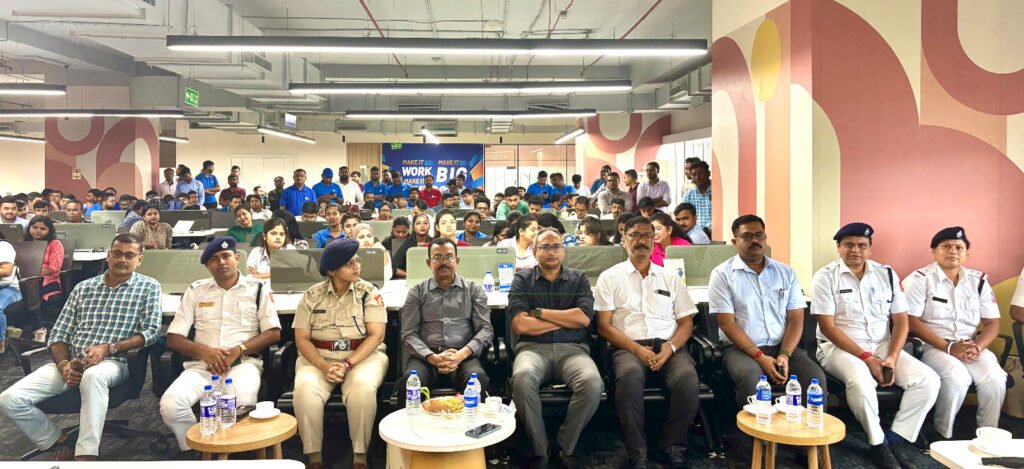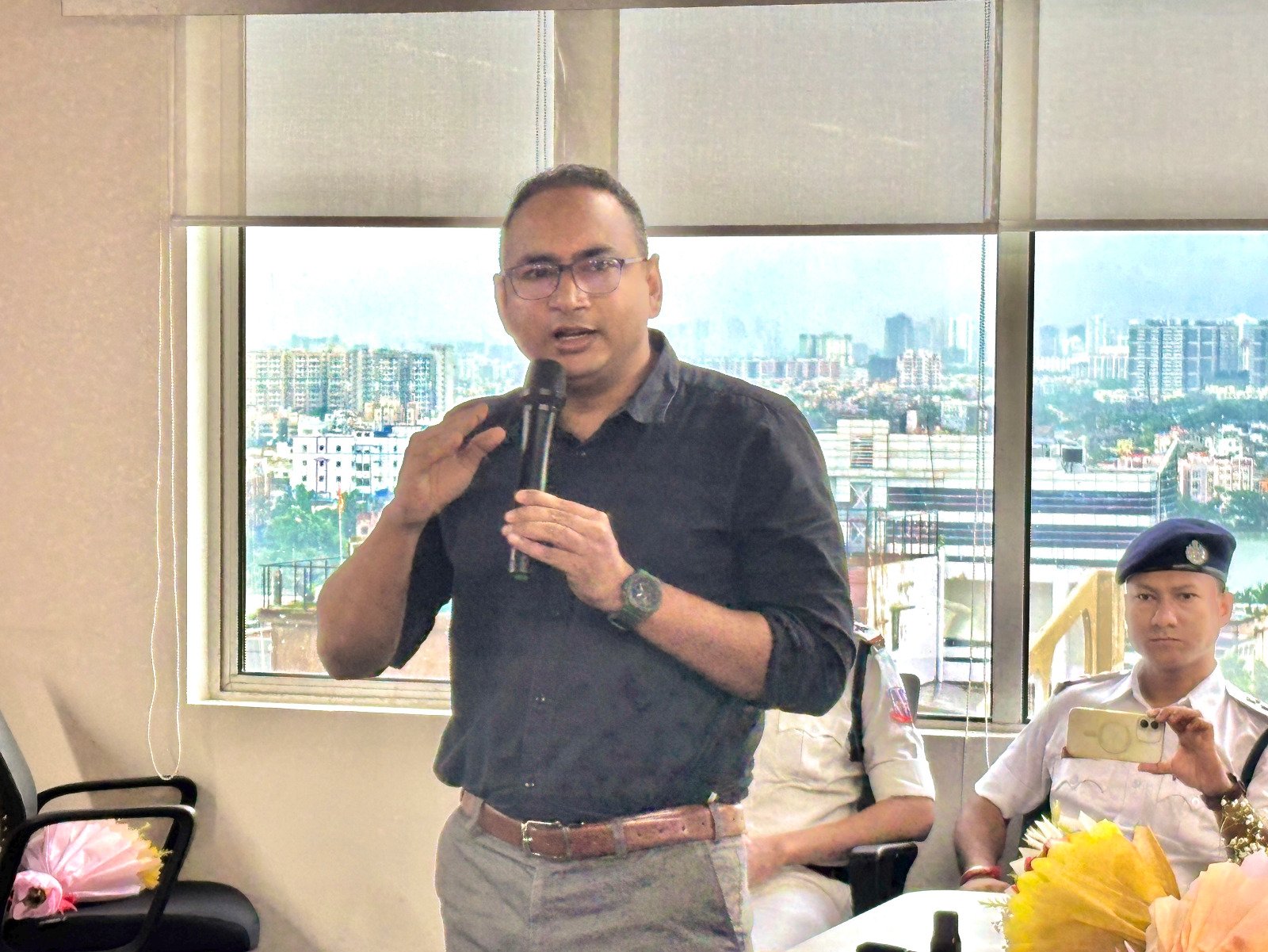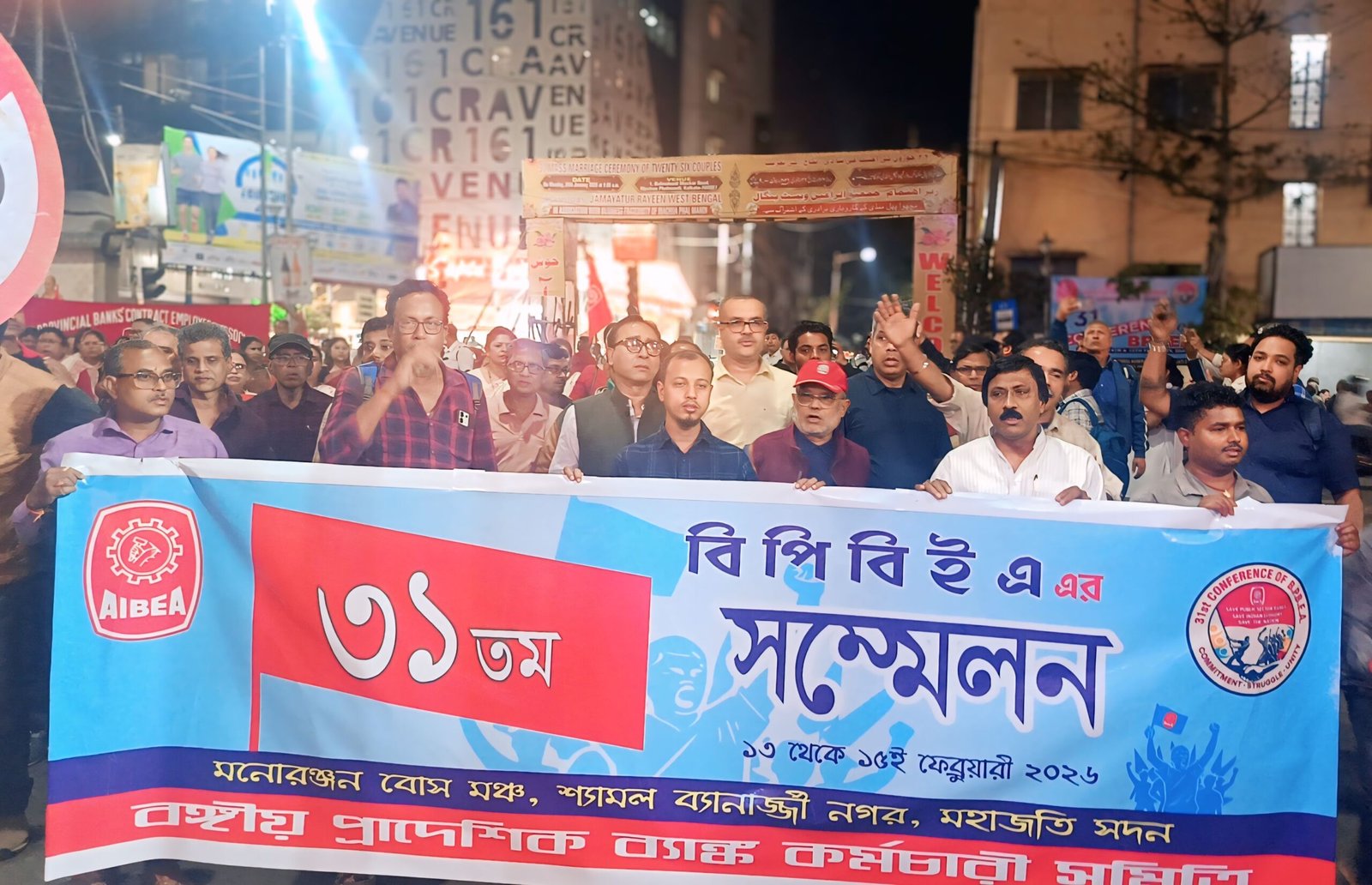West Bengal, July 14, 2025 : Bajaj Finance Ltd (BFL)., India’s largest Non-Banking Financial Company (NBFC) in the private sector and part of Bajaj Finserv, held a cyber fraud awareness programme in Salt Lake, Kolkata – Knockout Digital Fraud – to inform digital users about different types of threats, and best practices to safeguard finances.
The Knockout Digital Fraud programme aligns with the Reserve Bank of India’s 2024 guidelines on Fraud Risk management for NBFCs, which emphasises early detection, staff accountability, and public engagement to make the digital ecosystem safer for everyone.
The programme is focused on drawing citizens’ attention to common financial frauds committed by scammers including fake social media accounts, WhatsApp groups and websites that mimic financial companies, falsely claiming affiliation and impersonating their employees.
Addressing the audience during Bajaj Finance’s “Knockout Digital Fraud” awareness initiative, Kuldip Suresh Sonawane, IPS – DCP(DD), Bidhannagar Police Commissionerate, stressed the significance of staying vigilant and avoiding falling for enticing or unrealistic investment schemes circulating on social media or other platforms. He emphasized the importance of safeguarding sensitive information and being cautious of contemporary fraud tactics such as Digital Arrest, Job Fraud, Sextortion, OTP fraud, and others.

Sonawane advised the audience to exercise caution before making any decisions or taking actions, urging them to think twice before clicking on links or downloading apps from unknown senders. He warned that these actions could lead to malicious links that remotely access devices and potentially cause financial loss. He reiterated that cyber fraud can affect anyone, and victims should *promptly register complaints during the “Golden Hour” by calling 1930, using the NCRP portal, or visiting a local police station to ensure swift action is taken.
Speaking at the same initiative, Saptarshi Bhattacharya, WBPS, ACP, DD, Bidhannagar Police Commissionerate, highlighted that most scams occur due to two primary reasons: a lack of knowledge about our own devices and technology , and human greed—the desire to make quick money. He advised citizens to stay safe on social and digital platforms, verify all links sent to them, and install only verified apps from Google Play (for Android) or the App Store (for iOS). He warned against trusting unknown APK files, which may install harmful apps that share your data with fraudsters.
He further elaborated on threats such as Digital Arrests, WhatsApp hacking, and Investment Scams. Shri Bhattacharya cautioned, “Fraudsters often exploit low awareness, luring individuals with false promises of disproportionate appreciation of wealth. They may impersonate officials, claim drugs were found in your parcel, or say your ATM has been blocked—then trick you into revealing sensitive information or clicking harmful links. I urge citizens to remain vigilant, report suspicious activity to the nearest Police Station, and avoid interacting with unknown profiles online. Stay alert, stay safe.”
Speaking on the occasion, a spokesperson from BFL, said, “The financial safety of our consumers is paramount to us. We are constantly issuing online and offline advisories, on social media platforms, as well as through on-ground interactions with citizens, encouraging everyone to be cyber safe.”
Experts and dignitaries present at the event included Kuldip Suresh Sonawane, IPS – DCP, DD, BDNPC, Shri Saptarshi Bhattacharya, WBPS – ACP, DD, BDNPC & Addl Charge of ACP -Cyber, Sambiti Chakraborty, WBPS-ACP, South, BDNPC,Manotosh Raj-IC, Cyber Crime PS, BDNPC, Tanusree Das, O/C Women PS, Bidhannagar, Suvendu Mukherjee, O/C Computer, Social Media Monitoring, Bidhannagar and Ram Narayan Paul, IC, Electronic Complex PS. Retired Inspector General of Police, Sujit Kumar Sarkar and Retired DCP Asim Das, Kolkata Police also graced the occasion.
Knockout Digital Fraud offers the cyber community valuable safety tips on safeguarding personal and sensitive information. This includes refraining from sharing OTPs, PINs, clicking on suspicious emails, SMSs, links, QR codes and downloading applications from unknown sources. It includes a series of interactive workshops, digital awareness drives, and community outreach programs across major cities and towns



